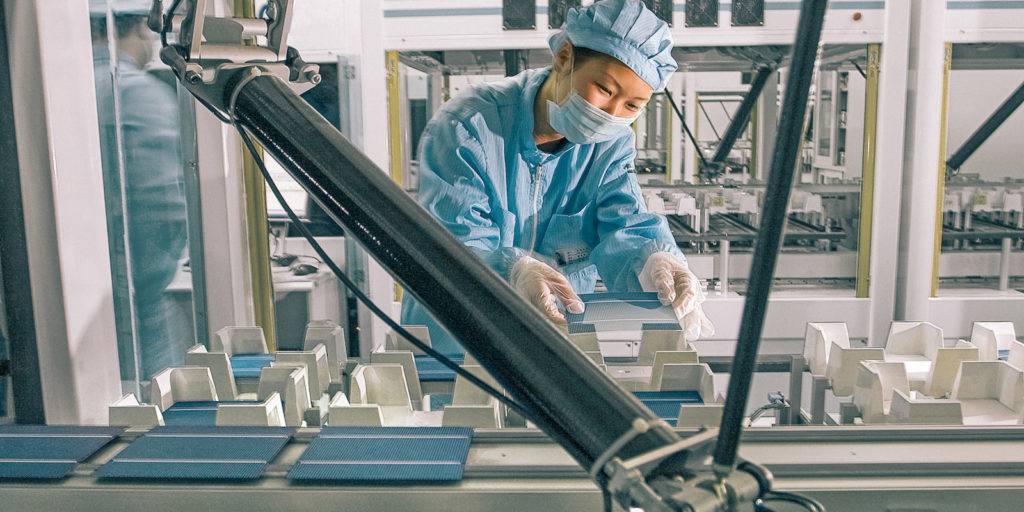China has come under pressure to launch more ambitious renewable energy projects and non-fossil fuel targets if it aims to meet its Paris Climate pact obligation. Two think tanks, the China National Renewable Energy Centre (CNREC) and the Energy Research Institute of Academy of Macroeconomic Research, have issued a report voicing their concerns that China risks missing its global climate accord requirements.
According to the report, the potential for solar, wind, and hydro in China far exceeds the targets set in Beijing’s five-year plan, launched in 2015.
The Chinese government has pledges to install 340 GW of hydropower capacity, 210 GW of wind and 110 GW of solar during this time.
However, the think tanks have jointly said that the country must raise its targets for non-fossil fuel to 26% of its total energy mix from the current 15% if it is to achieve its 2020 objective.
“The Paris agreement of reducing the global temperature by two degrees puts pressure on the short-term energy transition from coal and oil to non-fossil fuels,” said Wang Zhongying, deputy director general at CNREC.
Popular content
China became the world’s largest emitter of greenhouse gases in 2007, overtaking the U.S., and has since pledged to bring its carbon emission to a peak by 2030 or earlier in a joint agreement made with the U.S. ahead of the Paris Agreement of 2015.
Since the renouncement of the Paris Agreement by the Trump administration earlier this year, China moved to reaffirm its commitment to these targets. If current government policy is properly enforced, non-fossil fuels could account for 60% of China’s energy supply by 2050, exceeding any official government target of reducing coal, the nation’s most widely used fuel, especially in rural areas, alone to just half, the report said.
“(But) to ensure compliance with the Paris agreement, strong support to renewable energy deployment is needed on both the national and local levels,” said Wang.
This content is protected by copyright and may not be reused. If you want to cooperate with us and would like to reuse some of our content, please contact: editors@pv-magazine.com.


By submitting this form you agree to pv magazine using your data for the purposes of publishing your comment.
Your personal data will only be disclosed or otherwise transmitted to third parties for the purposes of spam filtering or if this is necessary for technical maintenance of the website. Any other transfer to third parties will not take place unless this is justified on the basis of applicable data protection regulations or if pv magazine is legally obliged to do so.
You may revoke this consent at any time with effect for the future, in which case your personal data will be deleted immediately. Otherwise, your data will be deleted if pv magazine has processed your request or the purpose of data storage is fulfilled.
Further information on data privacy can be found in our Data Protection Policy.